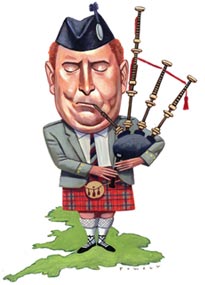Now, the second ..... (Their last point is a breathtakingly daring piece of literary criticism -- the kind that improves the humility of Course Lecturers.)Judgement: Overall, we all liked the novel.
- We found that the stream-of-consciousness style made the novel relatable.
- Though we didn't have much first-hand experience with the kind of depression felt by the protagonist, everyone can relate to feeling sad or lonely.
- The format and structure match the style of the writing. The way that some sentences break off without properly concluding and the way that there are no clear cut chapters follow the way that the mind works.
- We found the doctors to be frustrating, especially Doctor 3. We disapproved of his methods and found him to be incredibly unhelpful.
- We found the protagonist's obsession with buses was interesting. The buses could be seen as a symbol for journeys. The way that the protagonists often feels that she is going the wrong way on the bus, the way that she feels out of control, and the dream where the bus crashed into a wall are all symbolic of Joy's personal journey, her lack of direction, and the roadbloacks that spring up.
- about the state of being depressed
- accurate portrayal of depression
- still human
- Book is an experience of her problems, she is objectified and put through the revolving door of the medical system with ritualistic appointments.
- Curveballs in life have unhinged her life-leaving her confused as to what is signficant
- Human contact is necessary; Continental theory-we're all displaced.
- descriptions of mathematics and geometry in all texts, in Miss Brodie and
Laidlaw (in descriptions, ex. "the street was at a right angle" instead of some other descriptive
phrase.
- John Knox as TV? TV makes her feel guilty, all those thin women. Morose theme of Calvanist guilt.
- She reads Tarot cards for past and future, the present moment freaks her out, she can't make sense of it.
- Depersonalization:ex. Doctor scripts.
- about control-or lack thereof. Connection between mental illness and continental thinking. Theme of disconnect between objects and meaning. State of being.
- She goes to a hospital, she wants them to make her better. They tell her to relax, there is no miracle cure, healing has to come from within.
- She develops a sense of self throughout the book.
- She constantly makes lists and lives by them.
- Takes up hobbies to please others: ex. cooks to please men, keeps cooking even when things are bad. She knits because her friend does.
- She makes her own decision when Tony makes a pass at her, she refuses his advance and controls her life more so.
- She switches from gin to the more positive whisky at the end of the novel.




